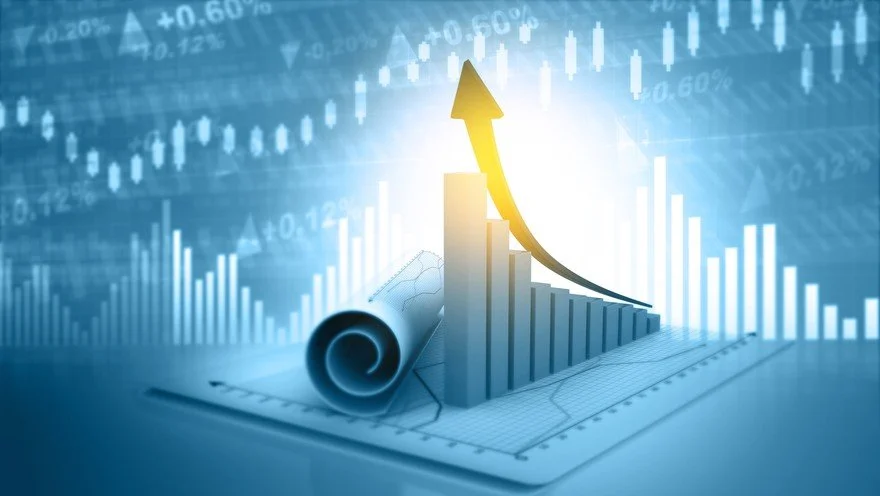Germany's Scholz Faces No-Confidence Vote: A Deep Dive into the Political Earthquake
Meta Description: German Chancellor Scholz faces a crucial no-confidence vote on December 16th. This in-depth analysis explores the political ramifications, potential outcomes, and the future of German governance following the coalition collapse. #GermanPolitics #Scholz #NoConfidenceVote #GermanElection #Bundestag
Imagine this: the seemingly unshakeable foundation of German politics, a three-party coalition, crumbles like a sandcastle in a storm. That's precisely the precarious situation Chancellor Olaf Scholz finds himself in. The upcoming no-confidence vote on December 16th isn't just another political maneuver; it's a seismic event with the potential to reshape the German political landscape for years to come. This isn't just about the fate of one man; it's about the stability of Europe's economic powerhouse and its role in the international arena. We'll delve deep into the intricacies of this crisis, examining the underlying causes, analyzing the potential outcomes, and speculating on the long-term consequences for Germany and the world. Prepare for a rollercoaster ride through the heart of German politics, where alliances are forged and broken, and where the future hangs precariously in the balance. This isn't your grandpappy's political analysis; we're going beyond the headlines to uncover the real story behind the headlines – a story of ambition, betrayal, and the high stakes of German democracy. Get ready to understand the nuances of this pivotal moment in German history and its global implications. This isn't just news; it's a drama unfolding before our very eyes, and we're here to provide the exclusive, in-depth analysis you need to understand it all.
The No-Confidence Vote: A Breakdown of the Crisis
The December 16th no-confidence vote against Chancellor Scholz marks a pivotal moment in German politics. Triggered by the collapse of his coalition government, the vote hinges on a simple question: does the Bundestag (German Parliament) still have confidence in Scholz's leadership? A failure to secure a majority – a staggering 367 votes – will likely lead to the dissolution of Parliament and snap elections, potentially as early as February 23rd, shaking the foundations of German stability.
This isn't simply a matter of numbers; it's a reflection of deep political fissures that have been widening for months. The unraveling began with the dismissal of Christian Lindner, the FDP (Free Democratic Party) chairman and Finance Minister, on November 6th. Scholz cited a lack of "cooperative trust" as the reason for Lindner's dismissal, a decision that effectively shattered the fragile coalition between the SPD (Social Democratic Party), the FDP, and the Greens.
The FDP's subsequent withdrawal from the coalition triggered the current crisis. Their departure left Scholz's SPD in a precarious position, lacking the necessary support to govern effectively. This isn't just about personalities; it's about fundamentally different visions for Germany's future. The FDP, representing a more liberal and economically conservative wing, clashed repeatedly with the SPD and Greens on key policy issues, leading to increasing tensions and ultimately, a breakdown in trust.
The upcoming vote is more than a simple confidence check; it's a referendum on the future direction of Germany. It's a battle between established power structures and a potential wave of new political forces. The stakes are incredibly high, not just for Germany, but for the entire European Union. Germany's economic stability and its leadership role in Europe are directly tied to the outcome of this vote.
Key Players and Their Agendas
Understanding the players involved is crucial to understanding the crisis:
-
Olaf Scholz (SPD): The incumbent Chancellor, fighting to maintain his grip on power. His strategy involves highlighting the potential instability of early elections and appealing to a sense of national unity.
-
Christian Lindner (FDP): The former Finance Minister, whose dismissal triggered the crisis. He and the FDP are now positioning themselves as a key voice of opposition, potentially capitalizing on voter dissatisfaction with the current government.
-
Robert Habeck (Greens): The Vice-Chancellor and Minister for Economic Affairs and Climate Action. His party faces a difficult choice: supporting Scholz and risking further damage to their reputation or joining the opposition and potentially triggering early elections.
This isn't merely a clash of personalities; it's a clash of visions for Germany's future. The FDP's emphasis on fiscal prudence clashes with the SPD and Greens' focus on social welfare and climate action. These fundamental disagreements lie at the heart of the crisis, making a swift resolution unlikely.
Potential Outcomes and Their Implications
The potential outcomes of the no-confidence vote range from the relatively predictable to the profoundly disruptive:
-
Scholz Survives: If Scholz secures the necessary 367 votes, he will remain Chancellor. However, his government will be weakened, and the underlying political divisions will persist, potentially leading to further instability.
-
Scholz Fails: If Scholz fails to secure the majority, he will likely recommend the dissolution of Parliament. This would trigger snap elections, potentially reshaping the German political landscape dramatically. New alliances could form, and new parties could emerge as dominant forces.
-
Coalition Re-formation (unlikely): A highly unlikely scenario would involve the formation of a new coalition government before the scheduled vote. This would require significant compromises and a willingness to address the underlying issues that led to the initial collapse.
The implications of each outcome are significant. Early elections would create uncertainty in the markets, potentially impacting Germany's already challenging economic situation. A weakened Scholz government would struggle to implement key policies, further hindering Germany's progress on various fronts.
The Impact on German Stability and the EU
Germany's stability is intrinsically linked to the European Union’s stability. As the largest economy in the EU, Germany plays a crucial role in setting the economic and political agenda. The current political crisis threatens to disrupt that role. Uncertainty surrounding the government's future could impact investor confidence, potentially slowing down economic growth. Moreover, Germany's ability to play a leading role in addressing European challenges, from the Ukraine war to climate change, could be compromised.
The EU faces a significant challenge if Germany enters a period of prolonged instability. The bloc is dependent on Germany's economic strength and political leadership. A weak or divided Germany would struggle to provide the necessary leadership to navigate the numerous complex challenges facing Europe. The outcome of this vote, therefore, has significant implications not only for Germany but for the entire European project.
Frequently Asked Questions (FAQs)
Here are some frequently asked questions about the situation:
Q1: What is a no-confidence vote?
A1: A no-confidence vote is a parliamentary procedure where the legislature votes on whether it continues to have confidence in the government or a specific government official (such as the Chancellor). If the vote fails, the government is typically forced to resign.
Q2: What are the likely consequences of early elections?
A2: Early elections could lead to increased political instability, uncertainty in the markets, and a delay in implementing key government policies. The outcome of the elections is uncertain, potentially leading to a significantly different political landscape.
Q3: What are the main disagreements between the coalition partners?
A3: The main disagreements centered on fiscal policy, social welfare programs, and environmental protection. The FDP favored fiscal conservatism, while the SPD and Greens advocated for increased government spending in social and environmental programs.
Q4: Could a new coalition be formed before the election?
A4: While theoretically possible, it's highly unlikely given the deep divisions between the coalition partners. The trust has been broken, and significant compromises would be needed to rebuild it.
Q5: How will this affect Germany's relationship with its allies?
A5: Prolonged political instability in Germany will likely weaken its influence and its ability to engage effectively with its allies on critical issues. The uncertainty could impact international collaborations and partnerships.
Q6: What is the most likely outcome of the vote?
A6: Predicting the outcome with certainty is impossible. However, given the deep divisions and the lack of a clear path to reconciliation, Scholz's failure to secure a majority and the subsequent snap election are increasingly likely scenarios.
Conclusion: A Pivotal Moment in German History
The no-confidence vote against Chancellor Scholz represents a pivotal moment in German history. The outcome will have far-reaching consequences for Germany, the EU, and the global political landscape. While the immediate future remains uncertain, one thing is clear: Germany is facing a period of significant political transformation, and the world is watching with bated breath. The coming days and weeks will be crucial in shaping the future of Germany and its place in the world. The drama is far from over. This is a story that will continue to unfold, and we will continue to provide you with the insights and analysis you need to understand it. Stay tuned.



